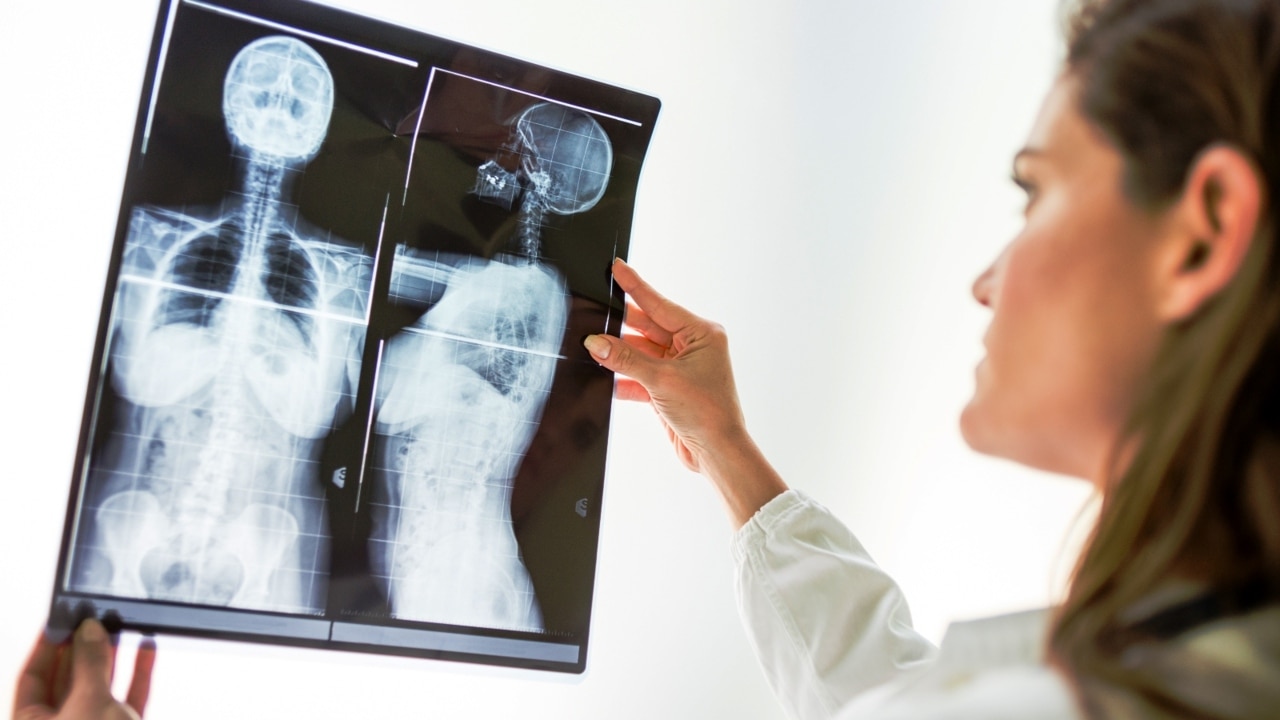’Revolutionary’ breast cancer find negates radiation therapy for many women
Roughly a quarter of all women with breast cancer detected via a mammogram may be able to avoid having radiation therapy in what would be a “revolutionary change” in treatment.

Roughly a quarter of all women with breast cancer detected via a screening mammogram may be able to avoid having radiation therapy in the future in what would be a “revolutionary change” in treatment of the disease.
Results from the Melbourne-led PROSPECT clinical trial show magnetic resonance imaging can be used to identify patients with a low risk of breast cancer recurrence, who could be treated successfully without radiation therapy.
Currently, most women diagnosed with breast cancer in Australia are treated with radiation therapy following surgery. Significant side effects are associated with the treatment.
Professor of surgery at the University of Melbourne Bruce Mann, who is the study chair of PROSPECT and the director of research at Breast Cancer Trials, said standard current treatment for breast cancer was based on statistics that showed that if surgery alone was performed without subsequent radiation, the risk of recurrence of the cancer within the breast was around 10 per cent after 10 years. But if radiation was also given, the recurrence rate dropped to around 3 per cent.
“Therefore everyone is recommended to have radiation, even though 90 per cent don’t need it,” Professor Mann said. “It’s almost certain that large groups of women have been over treated.

“As cancers got smaller, with more widespread use of screening, it seemed natural that we should be able to find a group of patients who don’t need that radiation. Prior trials to identify such patients have only been partly successful”
If an MRI is performed in a patient with an apparently isolated, low risk cancer, in 10 per cent of cases, another breast cancer or area of pre-cancer will be found. Despite this, MRIs are currently not recommended or funded in this setting because they have not been shown to improve outcomes.
Professor Mann’s team’s hypothesis was that the 10 per cent recurrence figure was due to these other cancers that remained undetected by mammograms and therefore remained untreated.
In the PROSPECT trial, when MRIs were performed on 440 women, just over 200 women were found to fit the study criteria and were treated without radiation. Their recurrence rate after five years was only 1 per cent, leading the researchers to conclude that treatment without radiation appears to be safe in such women.
Eleven per cent of the women in the trial were found to have additional cancers that were treated with surgery and usually radiation. In the entire cohort, only one patient experienced a cancer recurrence leading to death, suggesting that finding and treating the additional areas of cancer was also important in preventing cancer recurrence.

“This is pretty revolutionary, but understandably and appropriately, big changes won’t happen on the basis of one study,” Professor Mann said.
“I strongly suspect that the findings are real, but this does need to be replicated in a multi-centre study before it would be safe for women in this situation to be treated in this manner.”
Bernadette Blair, now 74, was part of the trial and was identified on MRI as having only a single cancer. She had a lumpectomy and then took hormone-blocking medication for six-and-a-half years. She has now been cancer free for 10 years.
Ms Blair was particularly keen to avoid radiation therapy as her husband had died of likely side effects of radiation therapy when being treated for colon cancer.
“If women have a certain type of cancer that is small enough and of a particular site size and type, and they can avoid radiotherapy, what a gift,” Ms Blair said.
“It was absolutely amazing to go through this process and have absolutely no side effects. I didn’t feel unwell at all. It didn’t slow me down, there was no physical impact to my daily life.”
The researchers at Breast Cancer Trials are now planning to partner with international organisations to create a multinational trial to further investigate their findings.






